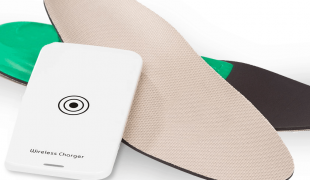- 6398
- 413
- 14
- 13
- 0
- Help Ukraine
About the solution
Mark Fleming was diagnosed with Asperger syndrome at 11 years, a diagnosed which helped explained why he had always exhibited poor movement coordination, difficulty maintaining balance and the frequent falls. But Mark had always loved sports and exercise so, through hard work, he eventually became a certified personal trainer, with a bachelor’s and master’s degree in exercise science and human performance from the University of Alabama.
From his own personal experience, Mark knew that many people living with disabilities had a sedentary lifestyle. Because there are few programs dedicated to encouraging people with disabilities to stay active, “A lot of the time, people with disabilities stay at home a lot and become sedentary”, Mark explains.
So, he decided to take matters into his own hands, and launched his own in-home personal training program dedicated to people with autism. He has now rented a space and opened a gym called Equally Fit, where he welcomes everyone with special needs that want to stay active. Mark creates personalized exercises plans for each of his clients, taking into account their individual needs and capabilities.
Mark’s main goal is to empower the disabled community: “It’s just to try to provide individuals a way to stay active, no matter where they are in their life. Just seeing individuals get healthy, it’s awesome — the healthier these individuals are, the more likely they are to live their best lives.”
Adapted from: https://blog.theautismsite.greatergood.com/puzzle-piece-fitness/
https://www.myautism.org/news-features/trainer-with-autism-helps-others-...
More information: http://www.equallyfit.com/#/
This solution shall not include mention to the use of drugs, chemicals or biologicals (including food); invasive devices; offensive, commercial or inherently dangerous content. This solution was not medically validated. Proceed with caution! If you have any doubts, please consult with a health professional.
DISCLAIMER: This story was written by someone who is not the author of the solution, therefore please be advised that, although it was written with the utmost respect for the innovation and the innovator, there can be some incorrect statements. If you find any errors please contact the patient Innovation team via info@patient-innovation.com
-
-
655
-
0
-
10322

Multiple sclerosis patient develops map to help people with disabilities
CAREGIVING
MOVING IN A WHEELCHAIR: Moving using a wheelchair.
WALKING WITH A WALKING AID: Walking with a walking aid
WALKING: Walking
Multiple Sclerosis
Website
App (Including when connected with wearable)
Restoring mobility
Enhancing health literacy
Promoting self-management
Rehabilitating After Stroke
Managing Neurological Disorders
Building Supportive Community Relationships
Promoting inclusivity and social integration
Recovering from Traumatic Injuries
Enhancing Mental Health
Raise awareness
Caregiving Support
General and Family Medicine
Internal Medicine
Neurology
Neurosurgery
Physical Medicine and Rehabilitation
United States
-
-
-
387
-
0
-
4259

Susana and Joe, parents of Caui, created the platform "Vencer o Autismo" in order to reduce the negative stigma associated with autism.
COMMUNICATION: Communicating, whether by speaking, listening, or other means
CAREGIVING
Social interaction
Autism
Social Media
Website
Strategy/Tip
Enhancing health literacy
Promoting self-management
Managing Neurological Disorders
Building Supportive Community Relationships
Promoting inclusivity and social integration
To improve Treatment/Therapy
Preventing (Vaccination, Protection, Falls, Research/Mapping)
Raise awareness
Caregiving Support
Child and Adolescent Psychiatry
General and Family Medicine
Medical Oncology
Pediatrics
Portugal
-
-
-
458
-
2
-
10098

SmartSole GPS - Tracker for people with Alzheimer's, dementia and autism
COMMUNICATION: Communicating, whether by speaking, listening, or other means
WALKING: Walking
CAREGIVING
Alzheimer's Disease
Dementia (Alcoholic Dementia, Vascular Dementia)
Body-Worn solutions (Clothing, accessories, shoes, sensors...)
Difficulty coordinating movements
Loss of balance
Social withdrawal or isolation
Cognitive impairment
Memory loss
Irritability or anger outbursts
Confusion
Restlessness or feeling slowed down
Anxiety
Panic attacks
Difficulty controlling impulses
Mood swings
Feelings of guilt or worthlessness
Suicidal thoughts or behaviors
Hallucinations (perceiving things that aren't there)
Dizziness or lightheadedness
Fatigue
Restoring mobility
Promoting self-management
Building Supportive Community Relationships
Promoting inclusivity and social integration
Improving Speech and Communication
Preventing (Vaccination, Protection, Falls, Research/Mapping)
Raise awareness
Caregiving Support
Child and Adolescent Psychiatry
General and Family Medicine
Internal Medicine
Medical Genetics
Neurology
Pediatrics
Psychiatry
United States
-
 en
en